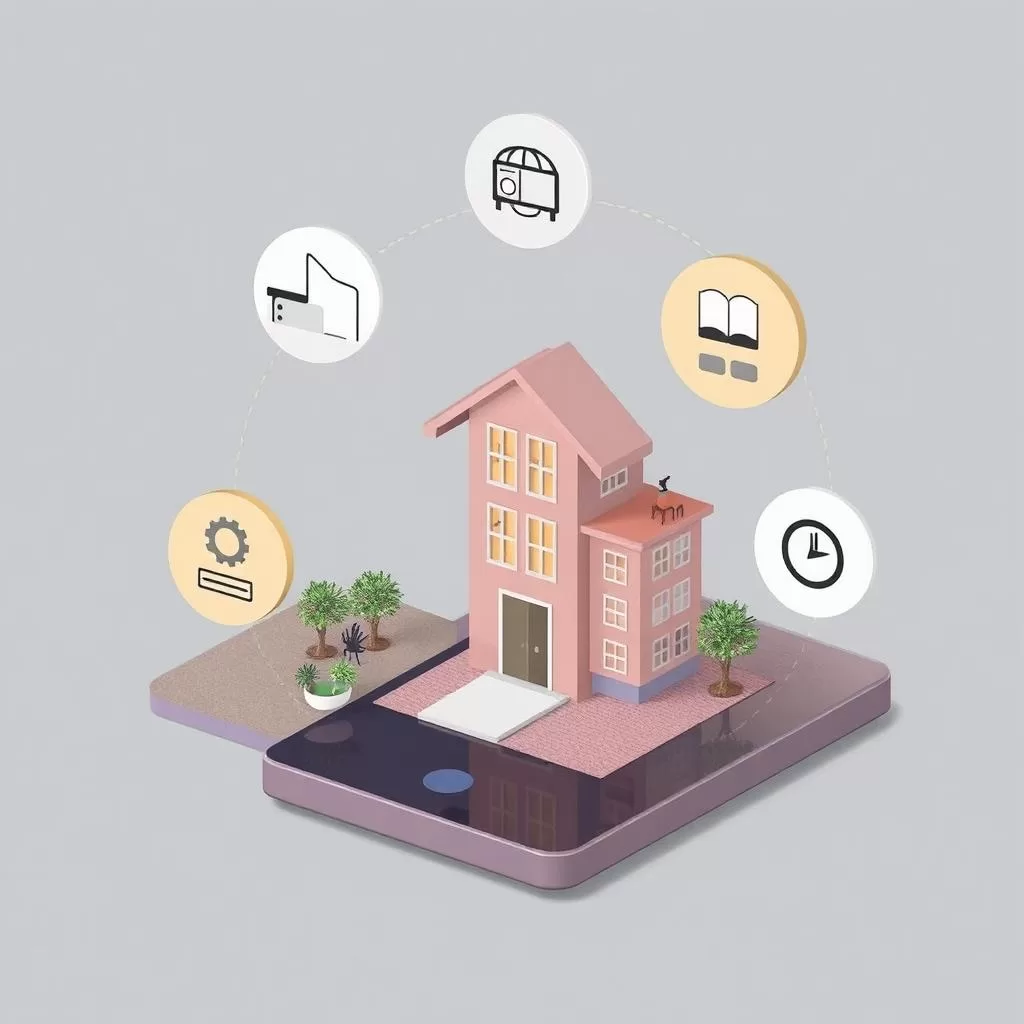Super Apps: How All-in-One Platforms Are A Game Changer
The concept of super apps is revolutionizing how we interact with digital services by combining multiple functionalities into a single, all-encompassing app. Initially popularized in Asia, platforms like WeChat, Alipay, and Grab set the standard for what a super app can achieve. Since then, the model has gained global traction, with major players such as Meta, Google, and PayPal beginning to adopt similar strategies.
What You’ll Learn in This Article:
✅ What are super apps, and why are they gaining popularity?
✅ How companies like WeChat, Paytm, and Meta are leading the trend
✅ The future of all-in-one platforms and their impact on digital services
What Are Super Apps?
A super app is a multi-functional platform that integrates various services into one application, eliminating the need to switch between multiple apps.
🔹 Key Features of Super Apps:
✔ Payments & Banking
To begin with, one of the most essential pillars of a super app is its robust financial ecosystem. Users can manage digital wallets, pay utility bills, and even make peer-to-peer transfers—all without switching to a separate banking app. This integration not only saves time but also provides a more secure and user-friendly way to handle day-to-day finances.
✔ Social Networking & Messaging
In addition to financial tools, super apps typically include social networking and communication features. From instant messaging and voice notes to video calls and community groups, users can stay connected with friends, family, and colleagues—all within the same platform. This makes it easier to multitask and communicate without hopping between multiple apps.
✔ E-Commerce & Shopping
Moreover, super apps often double as comprehensive e-commerce platforms. Whether you’re ordering groceries, browsing for fashion, booking movie tickets, or scheduling food delivery, everything is just a few taps away. These shopping features are deeply integrated, often supported by personalized recommendations and fast payment options to enhance user convenience.
✔ Ride-Hailing & Transportation
Finally, transportation is another key component. They frequently offer services like taxi booking, bike rentals, carpooling, and even public transit payments. By consolidating travel solutions, users can easily plan their commute or schedule a ride without needing a separate transit app.
💡 For example, WeChat started as a messaging app but evolved into a full-fledged ecosystem, integrating payments, e-commerce, gaming, and social media.
🔗 Related: Top 10 Emerging Technologies in 2025
Why Are Super Apps Gaining Popularity?
Super apps provide convenience, efficiency, and an all-in-one digital experience. Users prefer one app for all services instead of managing multiple apps.
🔹 Benefits of Super Apps:
✔ Faster Access to Multiple Services
One of the most obvious advantages is the ability to access a variety of services without juggling dozens of different apps. Whether you’re sending money, ordering food, chatting with friends, or booking a ride, everything is just a tap away. This all-in-one approach saves users valuable time and eliminates the hassle of managing multiple downloads and logins.
✔ Seamless User Experience
In addition to convenience, super apps are built for a smooth and unified experience. With a single login, users can move effortlessly between features like payments, messaging, shopping, and more. The consistency in design and functionality across services creates a more intuitive journey—one that keeps users coming back.
✔ Lower Costs for Businesses
From a business perspective, consolidating services into one platform leads to significant cost savings. Instead of developing and maintaining multiple standalone apps, companies can streamline operations, reduce overhead, and focus on enhancing a single, robust ecosystem. This efficiency often translates into better services and pricing for users, too.
✔ Increased User Engagement
Lastly, super apps are masters at driving user engagement. By offering multiple services that meet various daily needs, users tend to spend more time within the app. This deeper engagement leads to higher retention rates, more frequent interactions, and stronger brand loyalty over time.
💡 For example, Alipay, a Chinese super app, has over 1 billion active users, offering everything from banking to investments, transportation, and shopping.
Global Leaders in the Industry
Several tech giants are investing in super app ecosystems to dominate the digital services market.
🔹 Top Super Apps in Different Regions:
✔ Asia: WeChat (China), Grab (Southeast Asia), Paytm (India), Gojek (Indonesia)
✔ Middle East & Africa: Careem (Dubai), Opay (Nigeria)
✔ Europe & Americas: Revolut (UK), Mercado Pago (Latin America), PayPal & Meta (US)
💡 Example: Grab, originally a ride-hailing app, now offers food delivery, banking, investments, and travel bookings across Southeast Asia.
🔗 Related: How AI is Revolutionizing Fintech
The Role of AI & Blockchain in Super Apps
Super apps leverage Artificial Intelligence (AI) and Blockchain to enhance security, user experience, and transaction processing.
🔹 How AI is Used in these Super Apps:
Artificial Intelligence plays a critical role in powering the intelligence and efficiency behind super apps. From personalized experiences to behind-the-scenes security, AI is the driving force that enables these platforms to adapt to user needs in real time. As a result, AI not only enhances the overall user experience but also ensures seamless functionality across diverse services. Let’s take a closer look at how AI is seamlessly integrated into super apps to boost both functionality and user satisfaction:
✔ Personalized Recommendations
First and foremost, AI enables a highly customized experience by analyzing user behavior, preferences, and past interactions. Whether you’re shopping online, browsing for a service, or looking for content, AI algorithms suggest products, restaurants, or even news that are most relevant to you. This level of personalization not only improves the user experience but also increases the likelihood of conversions for businesses.
✔ Chatbots & AI Assistants
Customer service is another area where AI shines. Many super apps use chatbots and AI assistants to handle user queries, process orders, and offer 24/7 support. This automation speeds up response times, reduces reliance on human agents, and ensures users get instant, efficient help.
✔ Fraud Detection
Security is paramount in any digital platform, especially those involving financial transactions. AI helps super apps detect and prevent fraudulent activity by analyzing patterns in real time. It can flag suspicious activity like unusual spending or unknown logins. This helps protect users and their data efficiently.
🔹 Blockchain Enhancements for Super Apps:
✔ Decentralized payments – Secure crypto transactions and digital wallets
✔ Smart contracts – Automate financial transactions
✔ Data privacy – Enhanced security for user data
💡 For example, Facebook (Meta) is developing a super app strategy by integrating WhatsApp Pay, Instagram Shopping, and Messenger services under one ecosystem.
How They Are Transforming Industries
Super apps are disrupting multiple industries, from banking to healthcare.
🔹 Industries Benefiting from them:
Super apps are not limited to just one niche; rather, they are revolutionizing a wide range of industries by offering streamlined, tech-driven solutions. By combining multiple services into a single, cohesive platform, they are unlocking new opportunities and driving efficiencies across various sectors. As a result, super apps are having a profound impact, and here are some of the key industries that are experiencing a significant boost from their rise:
✔ Fintech
Financial technology is arguably one of the biggest beneficiaries of the super app model. Platforms like PayPal, Alipay, and Cash App have transformed the way users manage money, offering mobile wallets, instant transfers, micro-loans, budgeting tools, and even stock trading—all within one app. The ability to handle personal finances with just a few taps has made fintech more accessible than ever.
✔ E-Commerce
Another major area of impact is e-commerce. Super apps such as Amazon, Shopee, and regional players like Tokopedia have integrated shopping, food delivery, flash sales, and even live-streamed product demos into their ecosystems. This one-stop shopping experience keeps users engaged and simplifies the buyer journey from browsing to checkout.
✔ Transportation
Mobility and transportation services are also deeply woven into the fabric of super apps. Companies like Uber, Bolt, and Grab allow users to book rides, rent bikes or scooters, pay for public transit, and even carpool—all through a single, streamlined interface. As a result, this convenience not only simplifies the user experience but also helps reduce urban congestion. Moreover, by supporting more efficient, tech-powered travel solutions, these super apps are transforming the way we navigate cities.
✔ Healthcare
Even healthcare is embracing the super app approach. In fact, platforms like GoodRx and Practo are leading the charge by seamlessly integrating telemedicine, appointment scheduling, digital prescriptions, and even wellness tracking into one unified experience. As access to care becomes increasingly digital, super apps are playing a pivotal role in bridging the gap between patients and healthcare providers. This is particularly valuable in remote or underserved areas, where access to traditional healthcare services may be limited.
💡 For example, Gojek’s GoMed feature allows users to book doctor consultations and order medicine inside the app.
The Future: What to Expect by 2030
🚀 Increased Adoption in the US & Europe
While super apps have already taken hold in Asia, Western markets have been slower to catch on—until now. By 2030, we can expect a surge of adoption in the U.S. and Europe, as tech giants and startups alike begin developing all-in-one platforms tailored to local markets. Think of it as the next evolution of Big Tech, where companies like Meta, Apple, or PayPal might transform into super app ecosystems.
🚀 Crypto & DeFi Integration
The integration of cryptocurrency and decentralized finance (DeFi) will be a game-changer. Super apps are expected to offer more than just traditional banking—they’ll enable decentralized wallets, token-based payments, and access to DeFi lending, staking, and trading platforms. This will empower users with more control over their assets and offer a more inclusive alternative to conventional financial systems.
🚀 AI-Driven Automation
AI will continue to be a key driver of super app innovation. By 2030, its role will become even more significant. For example, intelligent assistants will move beyond basic tasks. They’ll proactively manage schedules, automate routine purchases, and handle bill payments. Additionally, they may suggest financial strategies or even negotiate deals on behalf of users. As a result, digital life will feel less like managing apps and more like having a personal assistant in your pocket.
🚀 More Government-Backed Super Apps
Governments are also beginning to recognize the potential of super apps, particularly when it comes to digital infrastructure. In the coming years, we may see central banks and public institutions launching official super apps that integrate digital IDs, tax services, healthcare records, and even CBDCs (Central Bank Digital Currencies). These platforms could offer secure, one-stop access to public services and play a vital role in digital governance.
💡 For example, India’s Unified Payments Interface (UPI) is paving the way for government-backed super apps for digital banking.
Challenges and Risks
Despite their benefits, super apps face several challenges.
🔹 Key Challenges:
While the future of super apps looks bright, their rapid rise doesn’t come without hurdles. As these platforms grow in scope and influence, they also face significant challenges that could impact their long-term success. Here are some of the key obstacles that both developers and users need to be aware of:
✔ Data Privacy Concerns
One of the biggest issues surrounding super apps is data privacy. These platforms collect an enormous amount of personal information—from financial transactions and location history to chat logs and shopping habits. While this data powers personalization and convenience, it also raises serious concerns about surveillance, data misuse, and user consent. As privacy regulations tighten, super apps will need to prioritize transparency and user control over personal data.
✔ Regulatory Challenges
As super apps expand into digital ecosystems spanning multiple industries, they increasingly draw the attention of regulators. Governments, concerned about digital monopolies, are introducing rules to limit anti-competitive behavior, ensure fair access, and protect consumers. Consequently, navigating this complex and evolving regulatory environment can slow innovation and create legal risks for companies looking to scale globally.
✔ Cybersecurity Risks
With so many services under one digital roof, super apps become prime targets for cyberattacks. A single security breach could compromise millions of users’ data, including sensitive financial and personal information. Building resilient cybersecurity infrastructure and ensuring robust authentication processes will be crucial to maintaining user trust and platform integrity.
✔ Market Competition
Lastly, the race to become the “go-to” super app is intensely competitive. With major tech players, fintech startups, and even telecom providers entering the space, it’s becoming increasingly difficult for any one company to dominate. Success often hinges on striking the right balance between innovation, usability, partnerships, and user loyalty.
💡 Example: The EU’s Digital Markets Act (DMA) aims to regulate big tech companies from monopolizing digital services.
How Businesses Can Adapt to the Revolution
Companies must evolve to stay competitive in a super app-driven world.
🔹 Strategies for Businesses:
- Develop API integrations – Allow services to connect seamlessly with super apps
- Invest in AI-driven customer experiences – Use chatbots, automation, and personalization
- Adopt blockchain-based security – Secure financial transactions and user data
- Leverage fintech solutions – Offer mobile payments, loans, and investment services
💡 Example: Amazon is exploring super app features by integrating banking, shopping, entertainment, and logistics into one platform.
Are Super Apps the Future of Digital Services?
Super apps are becoming the ultimate one-stop solution for digital services, combining banking, e-commerce, transportation, and entertainment into one ecosystem.
🔹 Why They Are the Future:
- Growing demand for all-in-one platforms
- Expansion of AI & blockchain-based security
- Global adoption of cashless payments & digital wallets
- Businesses seeking higher engagement & customer retention
💡 Example: Elon Musk’s vision for X (formerly Twitter) is to transform it into a Western-style super app like WeChat.
Conclusion: Super Apps Will Shape the Next Digital Revolution
Super apps are no longer just a regional phenomenon; in fact, they are quickly becoming the blueprint for the future of digital interaction. By seamlessly combining services like payments, messaging, shopping, transportation, and more into a single platform, they are fundamentally redefining what users expect from mobile experiences. Moreover, with the integration of cutting-edge technologies such as fintech, AI, blockchain, and decentralized finance, these all-in-one platforms are increasingly poised to become the digital hubs of everyday life. As a result, they promise to revolutionize the way we live, work, and interact with technology.
But while the potential is limitless, building a super app requires more than just vision—it demands technical expertise, strategic planning, and user-centric design.
💡 Build the Future with Teknikali Tech
At Teknikali Tech, we specialize in creating powerful, scalable, and secure mobile app solutions tailored to the super app era. Whether you’re a startup looking to launch a multi-service platform or an enterprise ready to expand your ecosystem, our expert team is here to turn your ideas into reality.
From intuitive UX/UI design and AI integration to fintech modules and real-time messaging systems—we’ve got you covered.
Related Reading: Why Do Apps Keep Asking for Permissions? What You Really Need to Know About Data Control
👉 Ready to lead the digital revolution? Contact Teknikali Tech and let’s build something extraordinary..
Key Takeaways:
✅ Super apps simplify digital services by integrating payments, e-commerce, and communication.
✅ Asia leads the super app revolution, but Western tech giants are catching up.
✅ Businesses must adapt to super app trends to stay competitive.
💬 Do you think super apps will dominate the future? Share your thoughts in the comments!
Share this content:







Post Comment